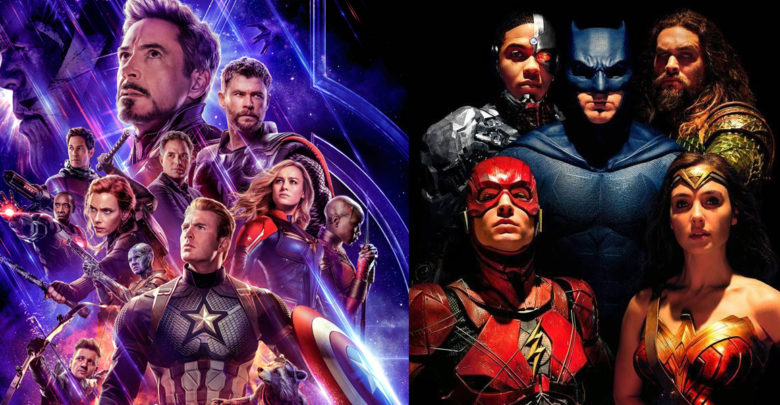Marvel and DC each bring different, important flavours to cinema
The comic book and cinema giants are both vital to the popular superhero movie subgenre
 Supplied
SuppliedI’m not an avid comic book fan. But there’s always been a sense of intrigue, an uncanny fascination, which allows me to indulge in the excitement generated across my generation during the release of comic book adaptions on the silver screen. The past decade has transformed this supposedly cheesy genre into a billion dollar industry (according to Business Insider, Endgame alone grossed over $2 billion) and made Batman, Captain America, and Iron Man mainstream pop culture figures.
The question of Marvel versus DC, which has befuddled generations, has now reached its peak. Every year, each of the major players tries to outdo the other and leave an indelible footprint in the history of comic books and cinema. However, having been a witness to the best of both worlds, I have come to a conclusion. Rather than pitting one against the other, there is a dualism between them that serves to complement each franchise.
The extravagant and Marvel(lous) Cinematic Universe, or MCU, came to the fruitful conclusion of its third phase this year with the much-anticipated Avengers: Endgame. This overarching story, which reached near perfection over the course of a decade, helped break all kinds of records and drove home a crucial point. Comic book movies, though campy and light-hearted fun, not only provide gems in story telling paradigm, but can also serve to provide a healthy escape mechanism. We can suspend our beliefs and relax while watching Captain America and company kick Thanos’ ass.
An almost flawless interplay between humour and high-octane fight sequences, this saga proves that films need not be nuanced pieces of art to resonate with the audience. Sometimes the best ideas are the simple and fun ones. They also occasionally contain relevant social commentary, as is the case with Black Panther.
On the contrary, the movies created by DC are much more grounded, and often serve to portray the unsavoury side of people and society. Movies like The Dark Knight trilogy, Wonder Woman, and Joker provide a deep yet eye-opening analysis of the machinations governing society. These movies do so by diving into the psyche of their multifaceted characters, heroes and anti-heroes alike.
The most recent example of this commentary in action is 2019’s Joker. Set in Gotham City, where the wealth disparity has pushed the city to the verge of collapse, Joker provides a harrowing portrayal of the heavy handedness with which the city deals with its less fortunate. What follows is a morbid, troubling insight into the psyche of one Arthur Fleck. His deteriorating mental and emotional faculties — exacerbated by his dire circumstances — cause us to question our own humanity and attitudes towards others. Joker implores us to move outside our self-indulgent, socially-isolated bubble, and reach out to those suffering in silence.
The philosophy of yin and yang appears to be in full bloom, where the fun, lighthearted cheekiness of Marvel movies is balanced by the much more mature and stoic storytelling technique of DC.
To quote the almighty titan Thanos,”Perfectly balanced, as all things should be.”




